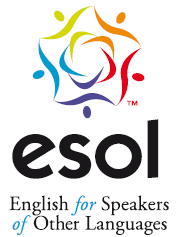 English for Speakers of Other Languages, or ESOL, refers to learning English as a new resident in a English-speaking country. ESOL is similar to ESL. It can be compared with EFL, which refers to learning and using English as an additional language in a non-English speaking country.
English for Speakers of Other Languages, or ESOL, refers to learning English as a new resident in a English-speaking country. ESOL is similar to ESL. It can be compared with EFL, which refers to learning and using English as an additional language in a non-English speaking country.
The purpose of this award is to enable the learner to develop the
relevant knowledge, skill and competence in a broad range of personal skills which enable personal development and active citizenship, and progression to employment, or further education or training.
COURSE CONTENT
| Title | Award | Awarding Body |
|---|---|---|
| Business English | Business English (4N1108) | QQI |
LEARNING OUTCOMES
– Knowledge
– Breadth Demonstrate a broad range of knowledge related to general, personal,
social and vocational concepts.
– Kind Demonstrate knowledge of some theoretical concepts and abstract
thinking relevant to general, personal, social and vocational
development, including a concrete understanding of personal,
interpersonal, mathematical and computer skills.
– Know How & Skill
– Range Demonstrate a moderate range of practical and cognitive skills and tools
used in general, personal, social, and vocational situations.
– Selectivity Select appropriate procedures from known solutions to solve a variety of
predictable general, personal, social, and vocational problems in
domestic and public situations.
– Competence
– Context Apply general, personal, social, and vocational skills, following
prescribed health and safety procedures, in a range of familiar and
unfamiliar domestic and public situations.
– Role Demonstrate good personal and interpersonal, mathematical, computer
and general skills, and quality awareness, in a supervised environment.
– Learning to Learn Take responsibility for personal learning, time management, study skills,
research skills, report writing and quality of work in a structured context.
Insight Reflect on personal performance and learning to inform self
understanding and behavior.




